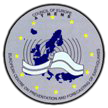Πρόληψη κ΄ Πρόγνωση
- Κατά την επετειακή Διημερίδα με θέμα «10 χρόνια μετά το Σεισμό της Αθήνας: Εμπειρίες και Διδάγματα», που έλαβε χώρα στην Πανεπιστημιούπολη στα Ιλίσια στις 3 και 4 Δεκεμβρίου 2009, το Ε.Κ.Π.Π.Σ. διοργάνωσε ειδική Συνεδρία με θέμα: «Κανόνες Επικοινωνίας για θέματα Σεισμών μεταξύ επιστημόνων και ΜΜΕ», με συντονιστή το δημοσιογράφο κ. Σεραφείμ Φυντανίδη.
- Στο πλαίσιο του Συνεδρίου ‘’Earthquake Prediction: State of the art’’, το οποίο πραγματοποιήθηκε στο Στρασβούργο της Γαλλίας το 1991 ψηφίστηκε ο Κώδικας Δεοντολογίας «European code of ethics concerning earthquake prediction», ο οποίος φαίνεται παρακάτω.
European code of ethics concerning earthquake prediction
The information concerning earthquake prediction can have dramatic repercussions on society if it does not found itself on various ethical considerations, which define the relations between Science and Society. Erroneous information can have social, psychological, political, economical, etc., consequences linked to panic movements, stress generating mistrust of the populations vis- α΄-vis the scientist and the public authorities.
The keystone of professional contact of scientist involved in earthquake prediction is integrity. They shall contact themselves with conscience, responsibility impartiality towards the public, towards the public authorities, towards the media, towards their employers and towards their fellow scientist, shall apply their special knowledge for the benefit of mankind.
Where the research or activities carried out by scientist lead him to forecast an earthquake, he has a duty:
- verify with other scientists the relevance of the scientific data and procedures which have led him to predict an earthquake;
- inform the senior stuff of the scientific and technical institution to which he belongs or works for.
The scientist, through the foreseen channels, has a duty to bring his predictions to the attention of the authorities of the country where he works.
The scientist should not inform the media or the public of earthquake predictions through channels other than appropriate ones, and only if he is authorized to do so or if the public authority has requested him to do so.

